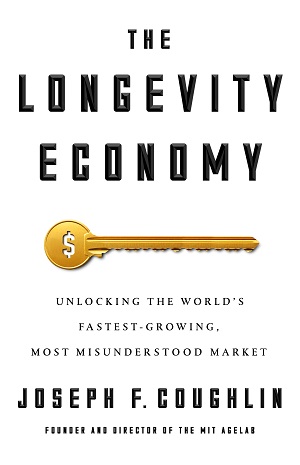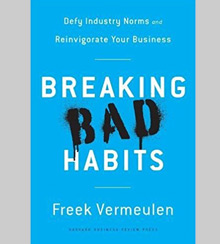 MIT Sloan Management Review, December 14, 2017
MIT Sloan Management Review, December 14, 2017
by Theodore Kinni
These days, scale is a top-of-mind issue among leaders of tech companies. Yet many of these leaders are missing the biggest and most obvious scaling opportunity they’ll ever encounter: old people.
The worldwide population of older adults — people age 65 and up — reached 617 million in 2015 (almost twice the total population of the United States); in the U.S. alone, older adults represent an $8 trillion consumer market. Thanks to longer life expectancies, there will be 1 billion people age 65+ by 2030, and 1.6 billion of them by 2050.
The problem — which Joseph F. Coughlin, director of MIT’s AgeLab and the author of The Longevity Economy, lays out in the excerpt below — is that most tech companies simply don’t get this deep-pocketed, growth market. Worse, because of the relative youthfulness of tech companies, their leaders are not only missing the biggest market they’re likely to see before they become old folks themselves, they’re also overlooking the job candidates who could help them tap it as well.
If your company is seeking scale, read the excerpt here.
Friday, December 15, 2017
Seeking Scale? Think Old
Posted by
Theodore Kinni
at
9:32 AM
1 comments
![]()
Labels: books, change management, competitive intelligence, corporate success, customer experience, innovation, technology
Wednesday, December 13, 2017
How to Break Bad Business Habits
strategy+business, December 13, 2017
by Theodore Kinni
 Back in the day, reading the newspaper on my morning commute to Manhattan was an origami-like exercise in folding and refolding. I never wondered why newspapers were printed on broadsheets that were too big for the bus. But Freek Vermeulen did. The clumsily sized standard for newspapers of record peeved him.
Back in the day, reading the newspaper on my morning commute to Manhattan was an origami-like exercise in folding and refolding. I never wondered why newspapers were printed on broadsheets that were too big for the bus. But Freek Vermeulen did. The clumsily sized standard for newspapers of record peeved him.It took the associate professor of strategy and entrepreneurship at the London Business School years to ascertain that the widely used broadsheet dated back to 1712. That’s when the English government began taxing newspaper owners by the number of pages they printed. Bigger pages meant fewer pages and thus less tax. The tax was eventually abolished, but the broadsheet remained the standard — even though the cost of the paper was high and its unwieldy handling irritated readers such as Vermeulen.
In 2003, an English newspaper bucked the long-established standard. The struggling Independent ran an experiment. It offered its paper in broadsheet and in a format exactly half that size in one market. The smaller paper outsold the larger by three to one. The Independent’s leaders quickly adopted the half-size version nationwide, and the paper’s print circulation rose 20 percent annually for several years.
The lesson, says Vermeulen, and the worthy theme of his new book, Breaking Bad Habits: “Killing bad practices can open up new avenues of growth and innovation and reinvigorate your business.” Read the rest here.
Posted by
Theodore Kinni
at
8:00 AM
0
comments
![]()
Labels: bizbook review, corporate success, creativity, innovation, management, personal success, strategy+business
Subscribe to:
Comments (Atom)














